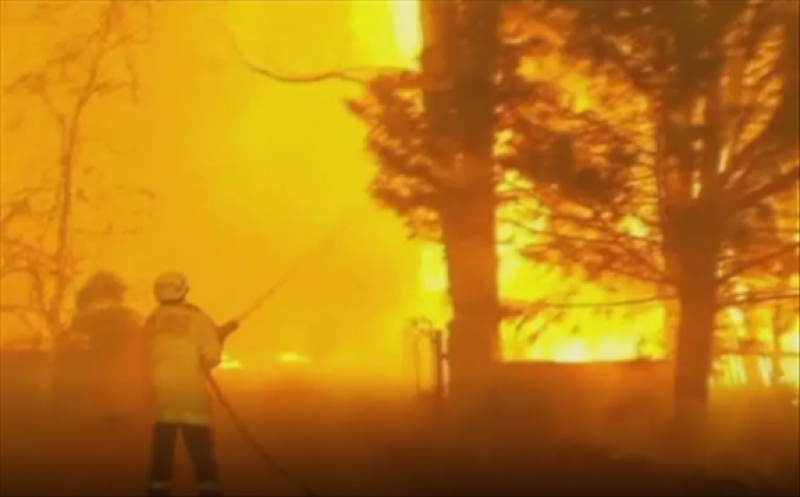
Around 200 wildfires were burning in four states, with New South Wales accounting for more than half of them, including 60 fires not contained.
The disaster has led to renewed criticism that Prime Minister Scott Morrison’s conservative government has not taken enough action on climate change.
Morrison rejected calls to downsize Australia’s lucrative coal industry. Australia is the world’s largest exporter of coal and liquefied natural gas.
“I am not going to write off the jobs of thousands of Australians by walking away from traditional industries,” he told Channel Seven.
Morrison made the rounds on several Australian television networks Monday morning in the aftermath of his much criticized family vacation to Hawaii during the wildfires crisis.
He eventually cut short his holiday and returned to Sydney over the weekend before visiting evacuation and emergency control centers and the families of two firefighters killed battling blazes last Thursday southwest of Sydney.
“We all make decisions. You do as a parent, I do as a parent. We’ll seek to balance our work life responsibilities and we all try to get that right,” Morrison told Channel Seven.
READ MORE: Cooler weather eases Australian fire conditions as PM returns from holiday
More than 3 million hectares (7.4 million acres) of land has burned nationwide during a torrid past few months, with nine people killed and more than 900 homes destroyed. Almost 800 homes have burned in New South Wales, which last week was paralyzed by a seven-day state of emergency amid catastrophic conditions.
There will be desperately needed relief this week for New South Wales, with cooler conditions forecast.
New South Wales Rural Fire Service commissioner Shane Fitzsimmons, however, painted a bleak long-term picture.
“We’ve got to keep in mind that we’re not expecting any rainfall to make any meaningful difference to these fires until January or February,” he said.
“That’s still a way to go. We’re still talking four to six weeks at best before we start to see a meaningful reprieve in the weather.”
Morrison’s coalition government won a surprise third term in May. Among its pledges was to reduce greenhouse gas emissions by 26% to 28% by 2030 — a modest figure compared to the center-left opposition’s pledge of 45%.
Morrison on Monday insisted Australia would meet its emission targets.
“I’m going to maintain the course of responsible management, responsibly addressing the changes of climate change and responsibly ensuring that we can grow our economy in what is a very tough climate at the moment,” he said.